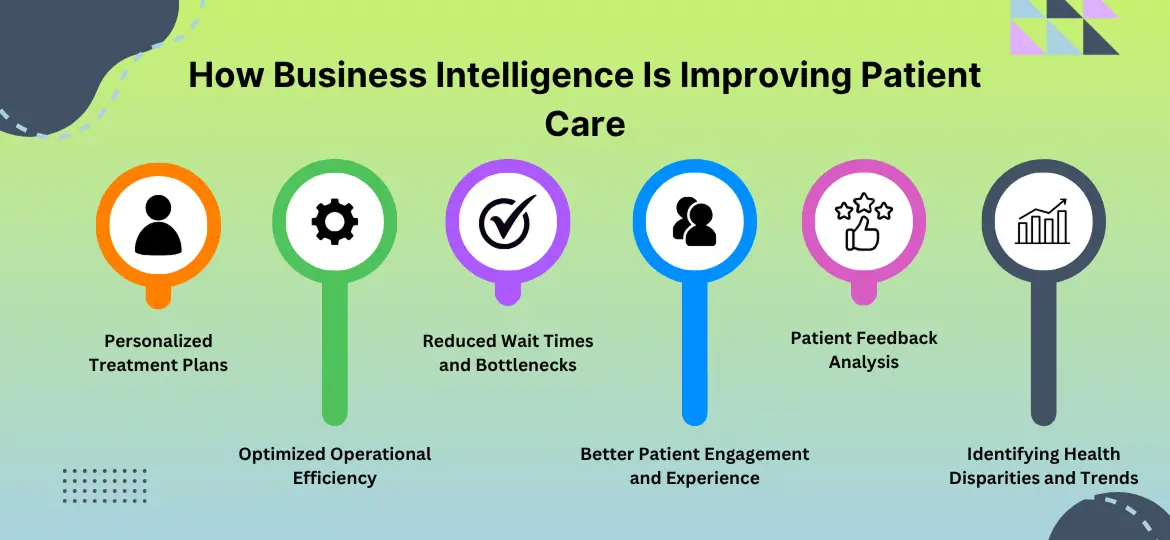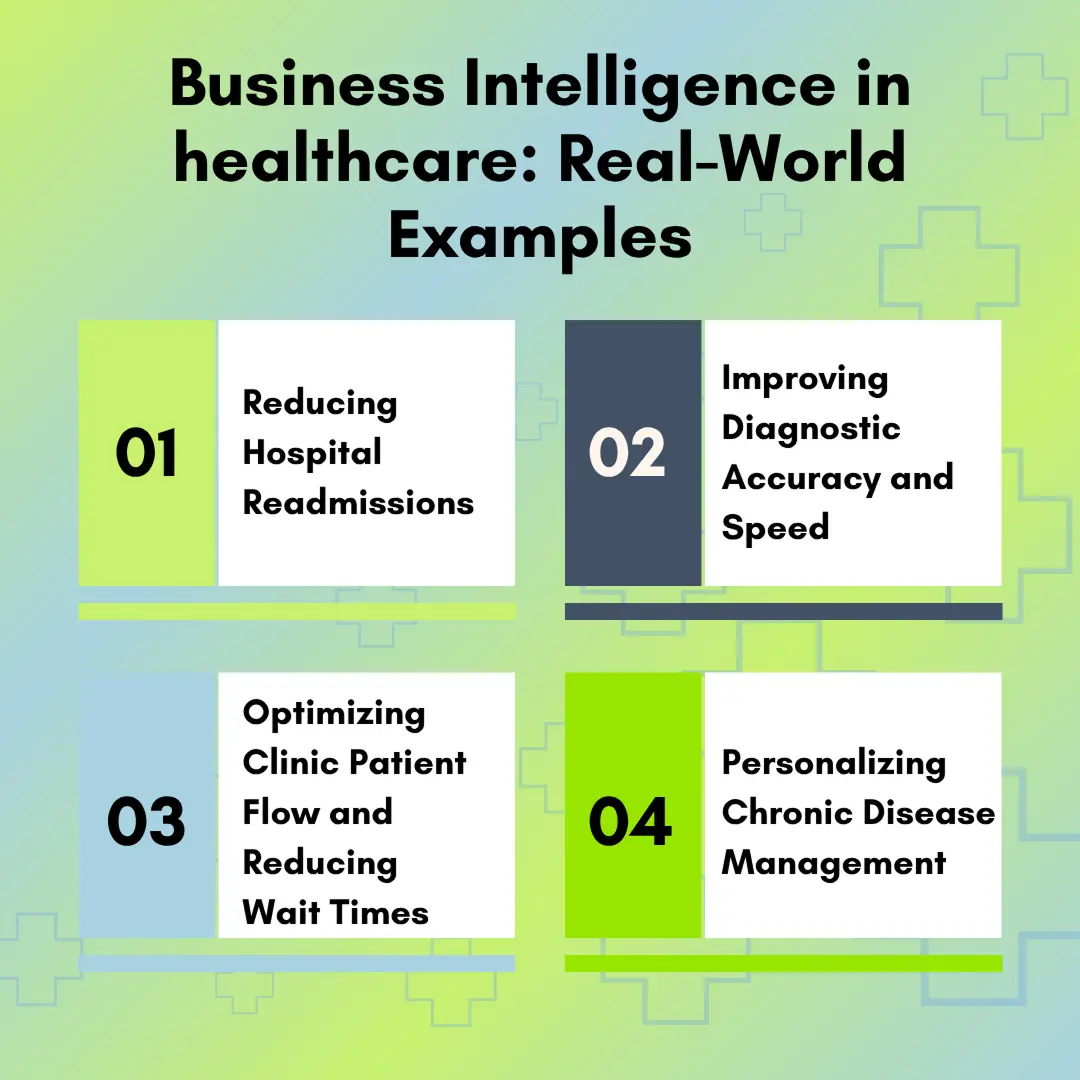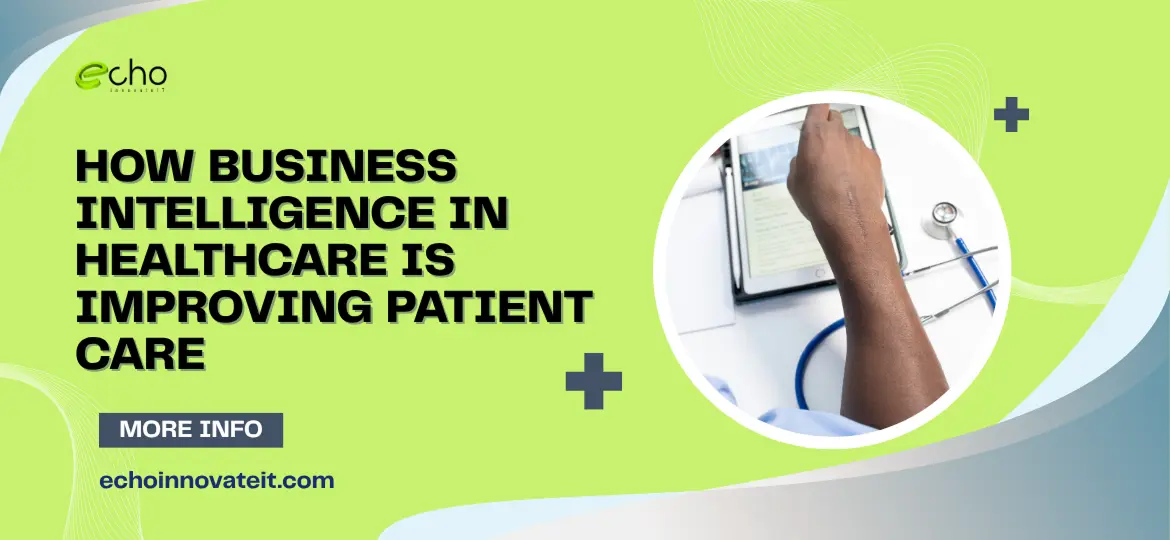Healthcare industries today face unprecedented strain. Costs continue to soar while patient data can often be dispersed across various systems; additionally, patients want more individualized care rather than one-size-fits-all approaches; all this poses unique challenges that call for more innovative solutions.
Consider Business Intelligence in Healthcare, for instance. What exactly does that entail? BI is more than simply looking at numbers; traditional reporting only tells us what happened, while Business Intelligence helps us understand why things happened and, more importantly, predict future events with clear, actionable insights based on raw data. This allows it to provide predictive capabilities with deep understanding capabilities – something traditional reporting cannot provide.
Business Intelligence in healthcare is revolutionizing patient care. Helping healthcare providers make decisions based on solid data instead of guesswork allows hospitals and clinics to operate more efficiently while creating more tailored health solutions aimed at meeting individual patient needs and goals more quickly than before. Business Intelligence puts patients first.
Main Ways Business Intelligence Is Improving Patient Care

Personalized Treatment Plans
Gone are the days of one-size-fits-all healthcare; now, Business Intelligence helps create highly tailored treatment plans. Utilizing tools that analyze all aspects of patient histories – medical records, lab results, genetic data, and lifestyle factors – Business Intelligence allows doctors to understand each person’s specific needs better so that doctors develop treatments tailored specifically for them. This results in more precise patient care that ultimately produces improved patient outcomes and more targeted care. Business Intelligence makes healthcare better!
Optimized Operational Efficiency
Hospitals and clinics can be complex environments. Business Intelligence in healthcare helps these complex environments run more smoothly by identifying bottlenecks in workflow, showing where resources are wasted and optimizing staff schedules, helping manage medical equipment more efficiently; as a result, there’s less wasted time and delays, which allows healthcare providers to devote their attention more fully towards patients – something BI directly contributes to. This way, BI can contribute towards providing excellent patient care services.
Reduced Wait Times and Bottlenecks
Nobody enjoys waiting when seeking medical help, which is why Business Intelligence in healthcare significantly reduces patient wait times. Utilizing tools that analyze patient flow data and predict peak hours for visits to help hospitals adjust staff levels accordingly, as well as optimize appointment scheduling to reduce wait time for all. By quickly recognizing bottlenecks in real-time and fixing them instantly, waiting times become shorter, leading to improved experiences for everyone and an overall better patient care experience – an example of how Business Intelligence improves healthcare services overall.
Better Patient Engagement and Experience
Patient engagement is at the core of good healthcare. Business Intelligence in healthcare empowers and enhances patients’ experiences by personalizing communication with them. For instance, reminders for appointments or medication can be sent at just the right moment, and patient portals can be made easier so patients can access health data more readily while becoming active participants in their treatment plans. This, in turn, enhances how BI advances healthcare services and care delivery.
Patient Feedback Analysis
Understanding what patients think is key for healthcare organizations looking to enhance the patient experience. With Business Intelligence tools enabling healthcare organizations to analyze patient feedback from surveys easily, social media posts, and review websites like reviews sites, Business Intelligence can quickly analyze large volumes of comments in surveys, social media feeds, or review websites using advanced techniques that identify common themes and sentiments quickly to pinpoint areas needing improvement quickly – for example if many patients complain of long wait times being an issue and acting upon this feedback helps increase quality care directly improving quality – an integral aspect of how BI helps healthcare improve patient care improvement efforts.
Identifying Health Disparities and Trends
Business Intelligence in healthcare plays a pivotal role in improving public health. By analyzing data from different sources, BI helps uncover health disparities across populations by spotting trends in disease prevalence or access to specific healthcare services (for instance, higher rates in one geographic location). With this data available to them, health organizations are better able to plan targeted interventions or allocate resources more strategically against any trends identified through Business Intelligence analysis – further evidence that Business Intelligence enhances patient care on an aggregate level.
Use Cases For Business Intelligence in Healthcare

Reducing Hospital Readmissions
Hospital readmissions can be costly, inducing costs that increase while signalling gaps in patient care. Business Intelligence in healthcare offers an effective solution. Business Intelligence systems analyze large amounts of patient data. Medical history, diagnosis, medications and socioeconomic factors are taken into consideration to identify patients at high risk of being readmitted shortly after discharge; for instance, BI might locate one with a complex chronic condition and limited home support as high risk. Hospitals can then implement targeted interventions. These might include personalized post-discharge plans, follow-up calls or home care services; such a proactive approach significantly lowers readmission rates while improving patient care overall. BI provides one such key example of this improvement process.
Improving Diagnostic Accuracy and Speed
Accurate and timely diagnoses are paramount in healthcare, which Business Intelligence tools play a vital role in improving. By gathering data from various sources – EHRs, lab results and imaging scans – and combining it, Business Intelligence enhances both aspects of care delivery. By spotting patterns across them all, BI can identify subtleties missed by humans alone that allow more precise diagnoses as well as speedier decision-making processes by clinicians with real-time alerts. This allows quicker decision-making, resulting in faster treatment being administered faster – one key benefit BI brings is patient care delivery improvement.
Optimizing Clinic Patient Flow and Reducing Wait Times
Long wait times in clinics can be time-consuming for both patients and staff alike; they also indicate inefficiency within operations. Business Intelligence in healthcare helps optimize patient flow dramatically to provide maximum satisfaction to both parties involved. BI systems analyze scheduling data, patient check-in times and consultation durations in order to detect bottlenecks within clinic processes – for instance, showing when certain appointments run overtime consistently, or the lab becomes overburdened during particular hours of operation. With these insights, clinics can adjust staffing levels, reorganize waiting areas and optimize appointment scheduling to reduce patient waiting times and create an easier experience – an example of how BI improves patient care.
Personalizing Chronic Disease Management
Coping with chronic illnesses such as diabetes or cardiovascular conditions takes ongoing, tailored attention. Business Intelligence in healthcare makes this task far simpler by collecting and analyzing patient information continuously. BI tools collect, process, and interpret this patient-generated data in real-time. By tracking vital signs over time and trend analysis, business intelligence helps healthcare providers gain insight into each patient’s individual disease progression, allowing for personalized treatment plans to be developed and executed effectively. Adjusting medication, suggesting lifestyle modifications and scheduling timely interventions based on data is one approach used by business intelligence (BI). It empowers patients to more easily manage their conditions more easily – showing its true power for improving patient care.
The Future of BI in Healthcare
Business Intelligence in healthcare holds great promise for the near future. Through deeper integration with AI and Machine Learning, predictive models with greater sophistication will emerge that can reduce healthcare staff time spent providing direct patient care, freeing them up for direct patient contact instead. Real-time analytics with wearable devices becoming standard will offer continuous monitoring as well as immediate insight into patient health status for faster interventions that move beyond reactive care towards proactive health management.
At the core, personalization will increase, with healthcare plans tailored more precisely based on genetic and environmental information, providing exceptional patient results. Finally, business Intelligence in healthcare will place even greater focus on engaging patients, giving them access to their health data so they can make informed decisions and actively take part in managing their well-being. This creates trusting relationships while ultimately improving overall well-being.
Also Read:
Conclusion
Business Intelligence in healthcare is revolutionizing patient care by equipping healthcare providers to make smarter decisions and move away from guesswork towards an intelligent, proactive, patient-centric healthcare system. Patients receive more tailored treatments, while operations become significantly more efficient; overall quality of care increases significantly.
Business intelligence in healthcare has become essential. Are you ready to use data effectively for better patient outcomes? Echoinnovate IT offers cutting-edge BI solutions specifically for healthcare organizations. Let our specialists assist in developing robust BI strategies in your organization while turning raw information into actionable insights – call Echoinnovate IT now for more information about how BI improves care at your facility!



